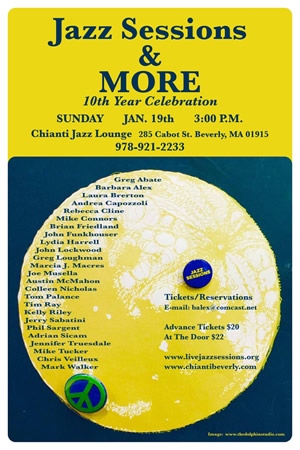 Ron Levy has been a storyteller all of his life. It’s his natural gift to relate to others his experiences in the form of anecdotes, jokes, and stories. Levy has also been a professional musician all of his life, and so it is only natural he has written biographical accounts of his life as a road player. Having supported Albert King, B.B. King, and many others, Levy offers up plenty of grist in his first book Tales Of A Road Dog. The Lowdown Along The Blues Highway.
Ron Levy has been a storyteller all of his life. It’s his natural gift to relate to others his experiences in the form of anecdotes, jokes, and stories. Levy has also been a professional musician all of his life, and so it is only natural he has written biographical accounts of his life as a road player. Having supported Albert King, B.B. King, and many others, Levy offers up plenty of grist in his first book Tales Of A Road Dog. The Lowdown Along The Blues Highway.
Although Levy is not a writer by trade, and it often shows, he is never the less a bright, articulate fellow who can put words together well enough to put you at the scene and to highlight the humor, sadness, irony, and wonder of what had gone down back in the day. It’s more than a fair trade off that readers, in place of a professional writer, get a warm, accessible personality and a keen eye for detail. Nobody but Ron Levy can tell the story of Ron Levy.
First, Levy must be credited with creating a wonderfully evocative feeling of the times and places he writes about. In the beginning, he brings you into the magical world of his youth, when a seemingly magical trolley car(Boston’s Green Line) could transport him from his suburban city of Brookline, Massachusetts into the heart of Boston’s and Cambridge’s jazz and blues clubs.
Levy joyfully relates this special time in the mid to late 1960s when it was common place for him and his friends to take in shows by
Howlin’ Wolf, Muddy Waters, Otis Spann, Paul Butterfield (w/ Mike Bloomfield) Band, Junior Wells, Sunnyland Slim, Hubert Sumlin, Freddie King, Earl Hooker, James Cotton, Magic Sam, Otis Rush, The Chambers Brothers, and Luther “Georgia Boy Snake” Johnson to name a few.
Boston, while known for “hippie music” rooms like the Boston Tea Party and Club 47, was also a major stop for all of the popular blues acts of the day. Levy’s descriptive voice puts his reader in those rooms and he gives a sense of the wonder of the time when big name blues acts were like a huge salad bar of musical offerings in the Hub. Blues fans were often spoiled by the choices available.
Levy’s life was changed forever after he attended a Ray Charles concert at Framingham’s Theater In The Round: “I had no idea what I was in for. Ray’s orchestra included the incredible Raelets, David ‘Fathead’ Newman on tenor sax, Billy Preston on organ, LeRoy ‘Hawg’ Cooper on baritone sax, Hank Crawford on alto and was at the very top tier of his renowned genius. ‘Georgia’ and ‘Hit the Road Jack’ were Ray’s hit records at the time.“What I’d Say”in person was a holy and sanctified revelation. I was stunned.”
It is enthusiastic passages about the transformative power of music on a young soul that has the greatest impact on Levy’s reader. Levy, as autobiographer, allows the reader to peer into the heart of himself while he experienced the new sounds that were emerging around him. The young Levy was soon taking his family’s kitchen radio into their piano parlor to play all of the soul music that was then landing on Boston’s black stations.
The true highlight, though, of chapter one is how Levy and his friends swiftly went from opening for Albert King to becoming his backing band. A temper mental genius, King fired his entire backing band at a gig on Route 1 and immediately told Levy and his young friends that they were his new band. Needless to say, Levy and his friends were too intimidated by King and too startled by this sudden advance in their careers to even think of turning him down. King, as revealed in Levy’s humorous anecdotes, would go as far as to electrify their touring bus to dissuade would be thieves and he also would brandish a Tommy Submachine Gun to ward off trouble. King was actually a deputy sheriff in his home state and was licensed to carry the weapon. But also just as interesting were less dramatic moments like discovering he and his young musician friends couldn’t play a King concert in Canada because they hadn’t yet joined the musicians’ union. And for humorous anecdotal insights into King’s demanding personality, let’s just say that Levy once made the mistake of hitting some jazz chords during a rehearsal: “Albert suddenly stopped and went berserk, ‘Whut in the hell is wrong wichu? I don’t want no mutherfu*kin kinda funky jazzy ass, sh*t chords on my tunes! THIS IS THE BLUES, DAMMIT! What in the fu*k is that sh*t? Damn, boy. Ain’t you loined nuttin’ from me yet? This is how you play a damn blues chord.’ He then proceeded to come over to my B-3 and play an Ab 7th chord with the b7th right below the tonic on top, with the 3rd on the bottom. He even changed the Hammond drawbar tone settings! ‘If you cain’t play them chords behind me like this’n, I’m gonna tear up that paper your daddy made me sign and send you back to yo’ mama!’”
In Chapter Three, Levy embarks on his seven year journey with B.B. King and King’s entourage, an association that would take him all around the world and bring him face to face with all sorts of personalities and experiences. Interestingly enough, Levy observed racism against a black friend in, of all places, Africa. After a misunderstanding between an African and an African American member of B.B. King’s entourage, Levy’s friend lamented that after all of his accomplishments and travels, he could still be called the n-word. The emotional scene was beautifully and mournfully rendered, Levy comforting a friend who was in tears at the ironic lack of racial fairness in the world. One of the most profound racial incidents in Levy’s career came at the hands of Nina Simone. The diva, while guest appearing with B. B. King, ushered Levy away from his keyboards to have a black musician play the instrument during her songs. She also made vicious comments to Levy about a white man not being able to play her music.
Foreign tours to Israel and Japan were lively events for Levy and others in B.B. King’s entourage. Confusion about Japan’s dinner prices and Israel’s history get highlighted through Levy’s unique storytelling knack and offer the reader moments of levity and moments of profound perception. The most amusing anecdote from the B.B. King years was of having to rescue a passed out King from an eccentric lady claiming to be his great love in the middle of a hotel lobby. Levy’s description of the woman, King, and the actions of all involved put the reader in the moment, making you feel at once the humor and the anxiety.
Famous people dotted the landscape of Levy’s life during the 1970s, becoming almost routine. Levy got to not only meet Elvis Presley but he interacted with him casually, and even received a gracious gift from the king. And Levy’s writing style perfectly captured the awkwardness he felt at that moment and he makes it entertaining to read.
This review is based on only a limited sneak preview of Levy’s Tales Of A Road Dog. If the first seven chapters are this entertaining, interesting, and illuminating to read, the whole of his book should be outstanding. This collection of personal travelogue-biographical anecdotes gives the reader a vicarious thrill ride through Levy’s years on the road with some of the most admired singers and players in blues.

